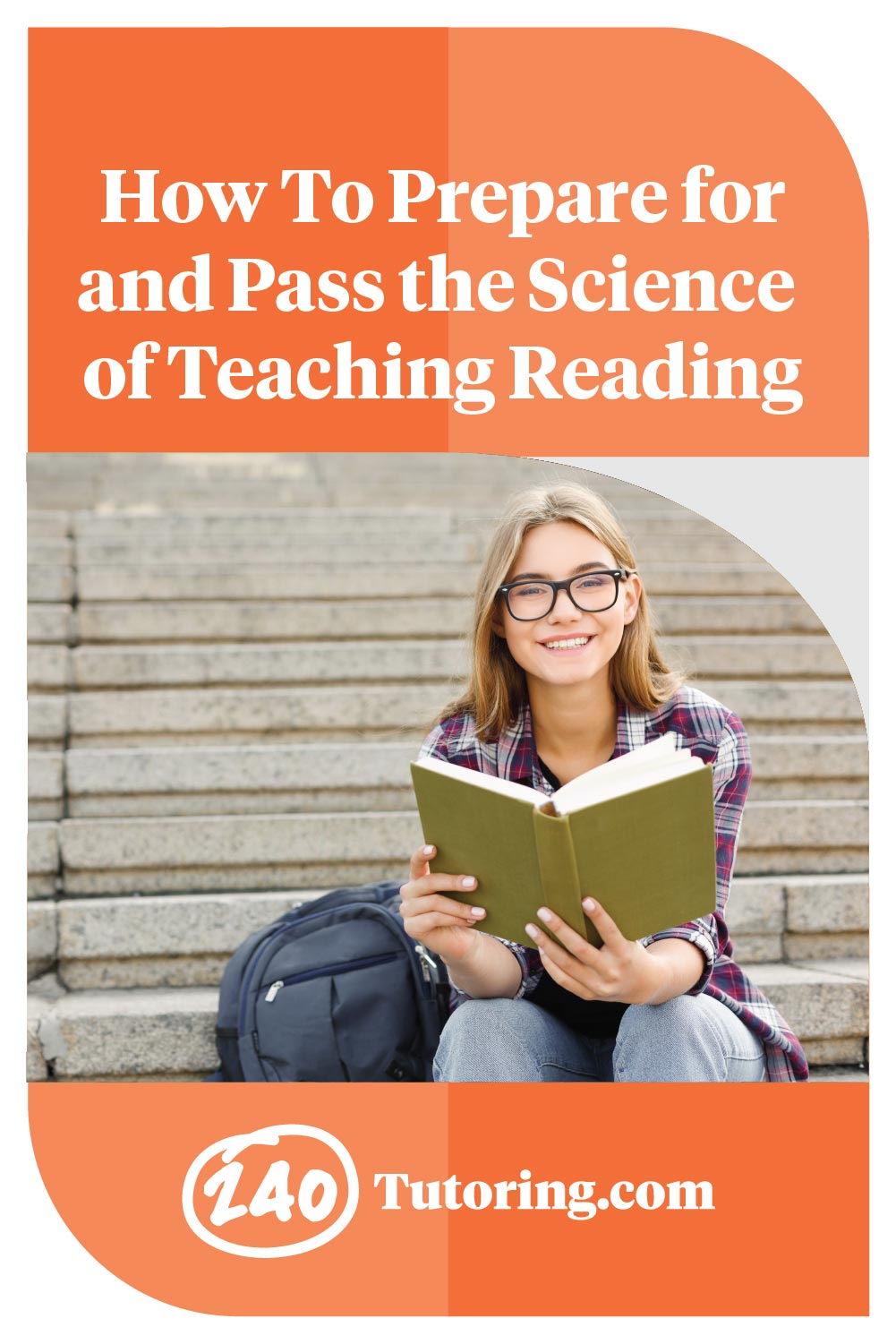Not sure what to study, or if you are going to pass? We can help!
I'm a teacher candidate at a university/college I'd like to transition to teaching I'm a current / former teacher I'm in leadership for K-12 or Higher Ed (EPP)How To Prepare for and Pass the Science of Teaching Reading (293)

 Preparing to take the TExES Science of Teaching Reading exam, but looking for some guidance on how to study? Trying to find the best resources, study guides, or free practice tests? Maybe you’re wondering how hard it is to pass the STR exam or how much time you’ll need to spend studying? If you have a question about preparing for the TExES Science of Teaching Reading (293) exam, you’re in the right place!
Preparing to take the TExES Science of Teaching Reading exam, but looking for some guidance on how to study? Trying to find the best resources, study guides, or free practice tests? Maybe you’re wondering how hard it is to pass the STR exam or how much time you’ll need to spend studying? If you have a question about preparing for the TExES Science of Teaching Reading (293) exam, you’re in the right place!
This article will cover specific questions you may have about preparation, including the following:
- Is the STR test hard?
- How do you pass?
- Where do you find study resources?
- What are the best study resources to use?
- Where do you find study guides?
- How do you use the study guides?
- How do you study for the STR?
- When should you start studying?
- How much should you study?
Let’s get started with some information about the difficulty level of the TExES STR exam.
How Hard is the Science of Teaching Reading?
The TExES Science of Teaching Reading exam is a relatively new test that began in January 2021. The Science of Teaching Reading was previously combined with the Core Subjects EC-6 ELAR and STR exam, which has a recent passing rate of 86%. As of September 2021, the Texas Education Agency established a scaled score for each portion of the exam. Although, results will still include “Pass/Fail” that will be given alongside the numerical score. While the previous version of the exam had a relatively high pass rate, you always want to prepare for any teacher certification exam.
The STR (293) exam is composed of 90 selected-response questions and one constructed-response question within a five-hour allotted window. It is a challenging exam that requires a deep understanding and knowledge of foundational reading content (prek-6), best practice, and pedagogy. However, many of the topics covered in the STR exam include specific academic vocabulary and require knowledge of evidence-based best practices, making adequate preparation a necessity for this particular test.
Ultimately, the difficulty of the exam depends on your familiarity with its content. Know what to expect by reviewing the different domains and competencies, and read up on the structure of the exam using our free STR Practice Test and Prep Guide.
| Domain | Competencies | Percentage |
I: Reading Pedagogy |
|
13% |
II: Reading Development: Foundational Skills |
|
43% |
III: Reading Development: Comprehension |
|
24% |
IV: Analysis and Response |
|
20% |
How Do You Pass the Science of Teaching Reading?
After completion of the STR exam, you’ll receive a scaled score for your results within 28 days of taking the test. Your scaled score will fall within a range of 100 to 300. Most TExES exams require a scaled score of 240 to pass.
Start studying for your Science of Teaching Reading exam by taking a free practice test!
Where Do You Find Resources for the Science of Teaching Reading?
You’ve already found an excellent resource for the TExES Science of Teaching Reading exam! 240 Tutoring offers a free STR practice test and study guides. The 240 Tutoring study guides are aligned with the exam and come with a pass guarantee. You can also find information about the STR exam on the TEA website. Since this is a newer exam, it’s especially important that the resources you use are accurate and up-to-date, and that they refer to the TExES Science of Teaching Reading exam, not an older exam.
What Are the Best Resources to Use to Pass the STR?
The best resources are those that are researched, accurate, and up-to-date. 240 Tutoring resources offer all of this and can be found on our TExES Science of Teaching Reading page. If you’re looking for help answering the essay questions check out our article on constructed-response questions. You can also find up-to-date information about testing policies, testing centers, and score reports on the TEA webpage for the STR exam.
Where Do You Find STR Study Guides?
Our TExES Science of Teaching Reading Study Guide covers everything you need to know to pass. Since this is a new test, many websites may not have study guides available for this exam yet. In the next section, we’ll take a look at how to use our STR study guide.
How Do You Use Our Science of Teaching Reading Study Guides?
To use 240 Tutoring’s STR study guide, start by taking our free practice test. This will help you determine what areas you need to work on the most. Next, you can subscribe to our study guides for access to comprehensive, test-aligned study material. Plan to study in sections, starting with the areas you feel the least confident in. As you work through the study guide, you’ll find practice questions that can give you an idea of how well you’re understanding the material. You’ll also have access to a timed practice test that’s designed to be like the real STR exam. You can take the practice test up to three times to gauge your progress, and you can take the free diagnostic test as many times as you’d like. By using the practice questions, practice tests, and diagnostic tests, you’ll be able to see how well you’re understanding the material and decide how much more time you need to spend studying.
How Do You Study for the Science of Teaching Reading on Your Own?
Again, the best way to start studying is to determine your own strengths and weaknesses with regard to the STR testing standards using our free STR practice test. The diagnostic exam will give you an overview of the areas you did well on and the concepts you need to improve upon. Next, you’ll want to outline a study plan for yourself, starting with your areas of weakness. Then you will go through each of the outlined concepts, researching each one of them online and taking notes that will become your study materials. Then you will set aside time to study each week, and make sure you have enough time to cover all topics before your exam date. Or you could just use our study guide. It come with test-aligned content, practice quizzes, and a timed practice test designed to be like the real exam.
When Should You Study for the Science of Teaching Reading?
It’s never too early to start studying for your TExES STR exam. Study time will vary for each individual, but you’ll still want to plan on at least several weeks of study time, with a few hours dedicated to studying each week. Plan to start studying at least several weeks before your exam date. It is also helpful to review all of your previously studied content in the days leading up to the exam so that the information is fresh in your mind. However, if you’re short on time and looking for some advice, check out Dr. Kristy Mulkey’s tips for “Effective Cramming.”
Now you have the basic understanding of the 293 Science of Teaching Reading, how it’s scored and how hard it is to pass! It’s time to take the next step. Our entire TExES Study Guide — including the STR test — is available for in one monthly subscription, so what are you waiting for? Start studying today.

